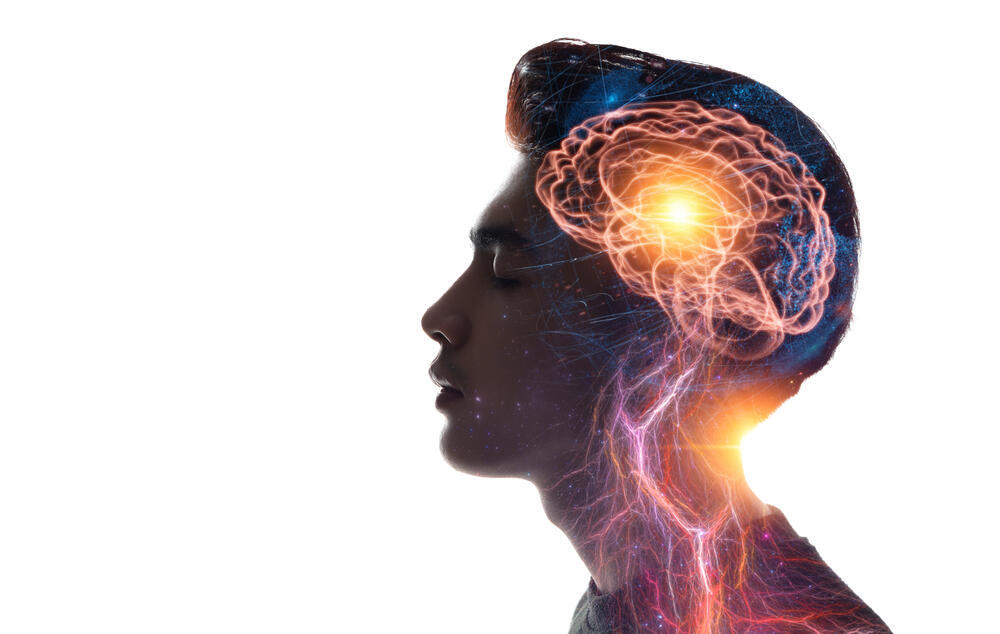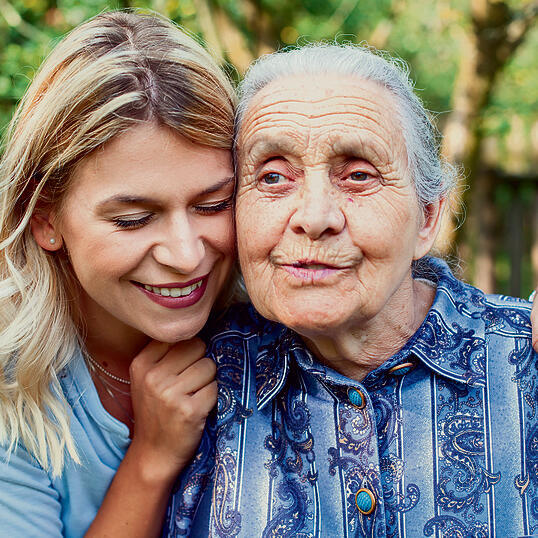Getting your Trinity Audio player ready...
Forget about anti-aging. Forget about pro-aging. In his new book, “Unaging”, American neurologist, Prof. Robert Friedlander, claims that we can age much better if we watch out for the four factors that affect the way we age: The physical (body), social, cognitive, and emotional factors of our lives.
Related stories:
The professor has dedicated almost five decades of his life to researching the reasons for brain diseases that come with aging, and has searched for new treatment methods for them. He is motivated by his grandfather’s struggle with Dementia. As he watched the disease steal away his beloved grandfather from him and his loved ones, he decided to dedicate his life to deciphering the disease. Over the years, Friedlander’s work has focused on the clinical and biological factors of Alzheimer’s Disease and related conditions.
He has authored and co-authored over 220 scientific publications on the matter. He currently heads the Neurology Department at the University of Louisville, Kentucky. He is also conducting ongoing clinical research regarding the connection between threatening germs in the mouth and the development of Alzheimer’s, Parkinson’s, and further neurodegenerative diseases. He recently collated all his research and clinical experience into a book titled “Unaging: Four Factors that Impact How You Age” - published last month by Cambridge University Press. The Wall Street Journal named the book as one of the top five books published in 2022 on aging and retirement.
“From our sixties onwards, we should be living the best years of lives: The children are living their own lives, leaving us more time for ourselves,” Prof. Friedlander explains in a conversation ahead of the book launch. “But at the exact time we’re supposed to start enjoying a new existence, our quality of life is tragically compromised by the onset of diseases associated with aging – from Diabetes and blood pressure through to Parkinson’s and Alzheimer’s Disease and Dementia.”
Although we do our best to take care of our health, it’s not uncommon to take a fatalistic approach toward aging. Prof. Friedlander’s message in his book is that aging is definitely not predetermined. “Small lifestyle changes and creating reserves of the four factors affecting aging – physical cognitive, psychological and social healthcare – can increase your chances of aging in good health while happily sustaining a good quality of life.”
From our conversation and from his book, here are some recommendations as to how to do this. To age more healthily, try checking off as many as possible.
The body
The first station on the road to healthy aging is obviously the body. Recommendations address diet, exercise, medication, etc.
Ensure a varied diet - decrease meat consumption, and increase dietary fiber.
One mechanism for the development of Alzheimer’s Disease is infection in brain cells affected by certain intestinal bacteria. A varied, fiber-rich, diet can replace these bacteria with anti-inflammatory bacteria that can enhance the immune system and decrease the chances of severe diseases. Your diet should be plant-based (fruit and vegetables, pulses, cereals, nuts) and omega-3-rich fish (freshwater herring and trout). Beef contains five times the amount of fat eaten by our ancestors (deer) and a high concentration of harmful saturated fatty acids and should be avoided as much as possible.
Try occasional fasting
Research has shown that occasional fasting has positive effects on the metabolism and on diseases in general as well as on intestinal bacteria, providing the aforementioned advantages. Occasional fasting decreases the fat stored in the body, improves the lipid profile, decreases blood pressure, and improves DNA repair, improving one’s emotional well-being, blood sugar regulation and even the development of cancer.
There are several fasting methods: Prof. Friedlander recommends 16:8, in which one eats during an eight-hour window over a 24-hour period. The rest of the time, one drinks only water and herbal tea.
Take note: Occasional fasting isn’t suitable for everyone (i.e., diabetics or people suffering from liver problems), so always consult a doctor for advice regarding fasting.
Exercise for 30 minutes a day
People exercising regularly over the years reach old age with all their organ systems working better than their less active counterparts. (More supple muscles, stronger bones, better heart and lung function).
Active people are better protected against falls, heart disease, diabetes and Alzheimer’s Disease. Exercising 30 minutes a day is enough to improve one’s physical health and should be combined with social interaction and cognitive activity such as going for a walk in the park or playing tennis with a friend.
Look after your Oral Health
Our mouths, noses and throats contain around a thousand types of germs. Some settle on the teeth and can affect the gum tissue. Certain types of germs can infiltrate the bloodstream, causing infection and can be fatal. Research has found a statistical connection between oral hygiene and a decrease in heart and blood disease.
Have regular periodic lab tests
Periodic age-appropriate lab tests can detect abnormalities in blood tests and identify diseases in their early stages, allowing for their early treatment and prevention. For example, if lab testing shows slight abnormalities in your blood sugar level or sodium imbalance, you can make minor lifestyle changes to prevent them from worsening. In other words: Periodic blood tests allow you to manage diseases, rather than diseases managing you.
Avoid polypharmacy (using multiple drugs to treat a single ailment)
As we grow older, we tend to take an increased amount of medication. Polypharmacy is generally defined as taking five or more drugs daily. Taking unnecessary drugs can cause poisoning and decrease the effectiveness of essential medication. Polypharmacy is regarded as a prime cause of hospitalization and health complications including falls and bone breakages among older people. If you take more than four drugs each day, consult your doctor as to whether the dosages can be decreased, and whether the interactions of the drugs compromise their effectiveness. It’s important to note that sometimes, numerous drugs do need to be taken simultaneously as they are indeed necessary and stopping taking them without medical supervision can be dangerous.
Welcome a health disruption as an opportunity to improve your health
Following illnesses that develop mid-life, some people manage to adopt a healthy lifestyle, improving their health at a later age. For example, if a 60-year-old woman with heart disease keeps to a suitable low-fat diet, starts exercising and stops smoking, she’ll reach 70 healthier than she was a decade earlier. In other words, changes that one faces in life shouldn’t prevent you from activities designed to fill the reserves but rather can make you think up new, different paths to follow under changing circumstances. So, instead of giving up on the gym after an injury, start working out at home, doing exercises is appropriate to your new physical condition.
Get eight hours of sleep a day
Sleep quality decreases as we age. Research has shown that sleep shortage damages memory, judgement, and concentration - leading to depression, diabetes and weight gain. It has further been found that sleep disruption can accelerate pathologies in the brain. One should therefore set regular waking and sleeping hours. To this end, one should remove the television and all electronic devices from the bedroom, mute the cell phone and exclude from the bedroom all activity not connected to sleep or sex. If none of these help, one should seek medical advice.
Be active while carrying out passive activities
Watching television generally doesn’t require intellectual effort. Sitting down for extended periods also doesn’t do your health much good. Cut down your television watching to a minimum (especially before sleep), and try to find a more active alternative such as reading. If you do insist on watching television, be sure to tell people around you about the content of what you saw. Telling stories is very good for your memory and practicing your attention skills.
Always be learning
One can learn at all ages, and taking part in learning is good for the brain throughout one’s life. Research has shown that educated people have a lower chance of suffering from Alzheimer’s Disease than their less educated counterparts. Learn whatever you like: Drawing, a new language, knitting, philosophy, dance. Just don't stop learning.
Replaces news with music
The world is full of terrible events. For the most part, you can’t do anything to prevent them. Today, any tragedy reaches our ears the moment it occurs. This means that we are exposed to too much negative information, causing tension, and dragging us down emotionally. So, try to cut back on the amount of news you listen to, replacing it with music you enjoy. This will make you generally more content and satisfied.
Let go of the anger
Carrying negative feelings such as anger and regret, or holding grudges for extended periods, ultimately decreases one’s quality of life and one’s ability to enjoy it. Healthy aging involves understanding that there are things that cannot be changed, and one must know how to accept them. That’s not to say one must ignore stressful life events, but one must take them proportionally and know how to let go of them at some stage. An efficient way of doing this is actively engaging in what’s going on right now (Mindfulness).
Make life meaningful right now
Don’t wait for retirement to look for new interests. Find out what interests you and what you’re good at. As we grow older and we lose friends and family members, we begin to lose a sense of purpose in life. We gradually sink into depression and stop being active. Over time, our health also suffers. So, if you reach old age, equipped with psychological reserves, with a world full of meaning, you’ll significantly decrease your chances of depression, loneliness, and various health problems. Try volunteering and being more involved in your community or taking on new hobbies.
Practice Silence
Silence is golden. Many people conduct busy lives and hardly find themselves in silence. The mind needs time to adapt to changing circumstances. Allocating time every day to silence and mediation can be enormously valuable. Silence can be practiced while walking, gardening or various other activities. Silence is relaxing, increases creativity and gives time for thinking and finding solutions to problems.
Research has shown that dementia is more common among people whose social activity decreases later in life. To stay healthy, humans need relationships with other people. Research has further proven that physical and mental illnesses develop faster when people are alone more. So, community and social involvement can increase a sense of belonging and the desire to stay active.
Play chess or backgammon
Games such as chess or backgammon build up cognitive and psychological reserves. These games involve thinking, developing strategy, and understanding situations. These activities also demand interaction with at least one other person. You could try any game that involves thinking including trivia games, rummy, memory games – as long as you make sure you’re playing with a friend.
Hug someone
If you watch monkeys, you’ll notice they’re constantly touching one another. We’re primates just like Orangutangs, gorillas and chimpanzees. Touching is natural for us, and it has an immense effect on our immune system, blood pressure and our general well-being. Even research on mice has shown that mice receiving more affection from the mother, such as kissing, licking and touching, have better memory skills as they mature. It was further found that the more affection they receive, the better they age.
Adopt a dog
A systematic review published in “The American Heart Association Journal” in 1919, including research stretching from 1950 to 2019 shows that dog ownership decreases overall morbidity by 30%, and heart-related deaths by 25%. Adopting a dog is good for social interactions at all ages. Dog owners meet in the park on their daily walk and start up conversations. Caring for another living being also makes people feel less lonely.
Develop a positive attitude to life
“People tend to spend time worrying. Time should be spent appreciating life, creating interactions with other people, and seeing what you can do to improve your quality of life.”
Prof. Friedlander concludes that: “Our beliefs affect our bodies, and our body affects our beliefs. We have to take care of our bodies.”







